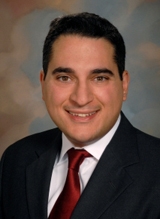Academic Excellence Seed Grant Awards - March 2018
|
Mihail G. Chelu, MD, PhD (Division of Cardiovascular Medicine)
|
Academic Excellence Seed Grant Program 3/1/2018 – 2/28/2019 Inherited Cardiac Arrhythmia/Cardiomyopathy The long-term goal of this project is to create a specialized collaborative clinical/translational platform that will enable identification of novel genetic and epigenetic modifications responsible for known or new inherited arrhythmias and cardiomyopathies syndromes. Furthermore, animal models for these variants will be created to enable a better understanding of their underlying molecular mechanisms and definition of novel therapeutic targets. |
|
Don A. Delker, PhD (Division of Gastroenterology)
|
Academic Excellence Seed Grant Program 3/1/2018 – 2/28/2019 Growth and Metabolic Characteristics of Colon Organoids Derived from Patients with Serrated Polyposis Syndrome Colon cancer often develops from colon polyps and a common subtype of colon polyp, the sessile serrated adenoma/polyp (SSA/P), accounts for up to a third of all colon cancers. However, the molecular pathways important in the progression of SSA/Ps to cancer are poorly understood. We recently defined the SSA/P transcriptome by RNA sequencing and identified many genes involved in insulin signaling and metabolic reprogramming differentially expressed in SSA/Ps. The goal of our proposed work is to evaluate the growth and metabolic characteristics of colon organoids derived from serrated polyposis (SPS) patients that develop many SSA/Ps and have an increased risk of colon cancer. Since cancer is a disease of altered stem cell function we hypothesize that the proliferative and metabolic characteristics of colon stem cells from SPS patients favors SSA/P development compared to control patients without polyps. |
|
Elizabeth Middleton, MD (Division of Pulmonary Medicine)
|
Academic Excellence Seed Grant Program 3/1/2018 – 2/28/2019 The Role of FCϒRIIA in Sepsis-Related Mortality, Inflammation and Platelet Function Dr. Matthew Rondina’s (IM) work focuses on novel mechanisms of platelet biology and the role of platelets in inflammation and infection. Dr. Con Yost’s (Neonatology) work focuses on neutrophil extracellular traps (NETs) and novel inhibitory peptides. Through our collaboration and funding awarded by the Department of Internal Medicine Academic Excellence Seed Grant we will utilize a murine model of sepsis to investigate the role of platelet FCYRIIA in mediating sepsis-related thrombocytopenia, thrombosis and mortality and investigate a new therapeutic targeting aberrant platelet activation. |
|
Richard Nelson, PhD, MS (Division of Epidemiology)
|
Academic Excellence Seed Grant Program 3/1/2018 – 2/28/2019 Does Prospect Theory Drive Antimicrobial Prescription and Stewardship Decisions? Research in cognitive psychology consistently shows that even when all information is available, decision-makers deviate from expected utility theory – which predicts that ethical providers will make decisions that optimize patient outcomes – in predictable ways. Prospect theory helps explain some of these deviations, and holds great promise to guide the development of interventions to improve therapeutic and diagnostic decision-making. One key tenet that prospect theory allows is loss aversion, which suggests that individuals place a greater value on losses compared to gains. Loss aversion can result in risky prescribing behavior (e.g., using marginally beneficial antibiotics in sepsis patients, high resource utilization at end of life) and may contribute to the overuse of healthcare and poor patient outcomes. Our aims include:
|
|
Nirupama Ramkumar, MD, MPH (Division of Nephrology)
|
Academic Excellence Seed Grant Program 3/1/2018 – 2/28/2019 Collecting Duct Renin Angiotensin System in Type 2 Diabetes Diabetic nephropathy (DN) is the leading cause of end stage renal disease in the United States and affects 20-30% of all diabetic patients. Among established risk factors, systemic hypertension is a major determinant for development and progression of DN and is highly prevalent in diabetic patients. While the pathogenic mechanisms for development of hypertension and renal injury in diabetes are not fully understood, activation of the renin angiotensin system (RAS) is thought to be a key contributor. The current proposal uses novel, genetically altered mouse models to determine the role of two RAS components, prorenin and prorenin receptor in the control of blood pressure and renal injury in Type 2 diabetes. |
|
Amnon Schlegel, MD, PhD (Division of Endocrinology)
|
Academic Excellence Seed Grant Program 3/1/2018 – 2/28/2019 Glucosamine Signaling in Metamorphosis and Metabolic Diseases O-linked β-N-acetyl-glucosamine (O-GlcNAc) modification of diverse proteins is a consequence of high glucose and, in turn, drives insulin resistance. We recently established in a zebrafish genetic system that life-long increased O-GlcNAc modification of the proteome stunts growth and causes hepatic steatosis. This proposal seeks to establish a molecular basis for these defects by identifying new O-GlcNAc-modified proteins. The results of this project may reveal new proteins involved in insulin signaling amenable to therapeutic or diagnostic exploitation in type 2 diabetes or nonalcoholic fatty liver disease. |





